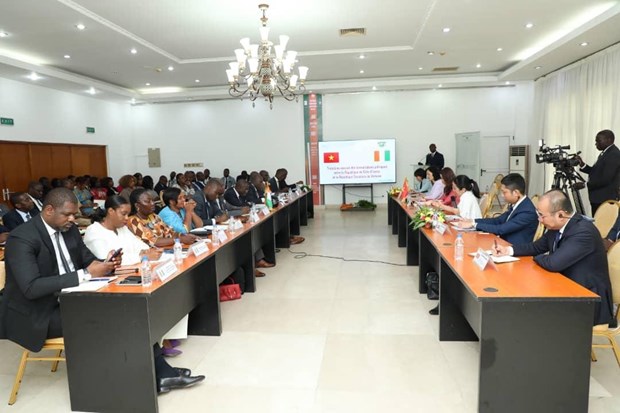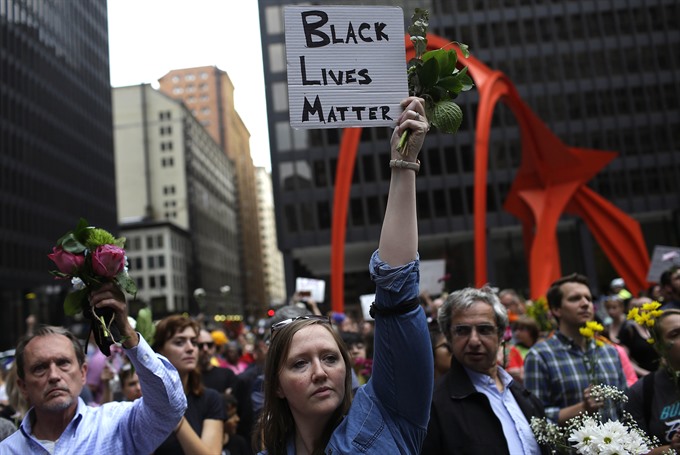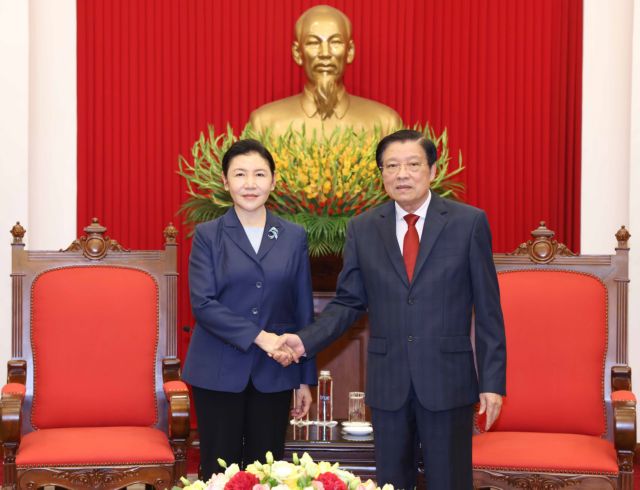

The White House on Sunday struggled to defuse the growing criticism of President Donald Trump's initial failure to explicitly condemn white supremacists for their role in the violent protest on Saturday in Virginia, insisting that his condemnation included all such groups.
 |
| People hold flowers at a vigil on Sunday in Chicago, Illinois for the victims in the previous day’s violent clashes in Charlottesville, Virginia. Heather Heyer, 32, was killed and 19 people injured in the city of Charlottesville when a car plowed into a crowd of people after a rally by Ku Klux Klan members and other white nationalists turned violent. Two state police officers died in a helicopter crash near the area. — AFP/VNA Photo |
BEDMINSTER, United States — The White House on Sunday struggled to defuse the growing criticism of President Donald Trump’s initial failure to explicitly condemn white supremacists for their role in the violent protest on Saturday in Virginia, insisting that his condemnation included all such groups.
A woman died and 19 people were injured in the city of Charlottesville when a car plowed into a crowd of people after a rally by Ku Klux Klan members and other white nationalists turned violent. Two state police officers died in a helicopter crash near the area.
A full day after the violence erupted, and after an initial statement in which Trump made no mention of white extremism, a White House spokesperson issued a statement saying, "The president said very strongly in his statement yesterday that he condemns all forms of violence, bigotry and hatred. Of course that includes white supremacists, KKK, neo-Nazi and all extremist groups."
In an appearance on Saturday at his golf resort in Bedminster, New Jersey, Trump faulted "many sides" for the violence. He made no mention of the far-right militia groups involved in the Charlottesville melee, some of whom were wearing Trump hats or T-shirts.
Vice President Mike Pence, meanwhile, specifically condemned the hate groups by name when asked to respond to the events in Charlottesville.
"We have no tolerance for hate and violence from white supremacists, neo Nazis or the KKK," Pence said on Sunday at a news conference in Cartagena, Colombia, where he was on the first leg of a Latin American tour.
"These dangerous fringe groups have no place in American public life and in the American debate, and we condemn them in the strongest possible terms."
But he also defended Trump, saying the president "clearly and unambiguously condemned the bigotry, violence and hatred" on display in Charlottesville.
Pence chided the media for what he called its stronger focus on Trump’s words than on those who perpetrated the violence.
Amid growing bipartisan criticism of his initial response, White House advisers appearing on Sunday on talk shows strove to defend the president.
White House homeland security adviser Tom Bossert told Fox News on Sunday that "I think you saw the president stand up very clearly and not only denounce it, but rise to a presidential level of calling for a countermessage of love and dignity and respect for fellow human beings."
But the Charlottesville mayor, Michael Signer, laid much of the blame for the violence directly at the president’s feet, saying in an impassioned appearance on CBS that Trump had created an atmosphere of "coarseness, cynicism (and) bullying."
"He made a choice in his presidential campaign, the folks around him, to go to the gutter, to play on our worst prejudices," Signer, a Democrat, said.
Many Republicans joined in the criticism of Trump, including former presidential aspirants Senators Marco Rubio and Ted Cruz.
Another Republican, Senator Lindsey Graham, told Fox News on Sunday that "I would urge the president to dissuade these groups that he’s their friend."
"Their cause is hate."
Even the man who was briefly the White House communications director, Anthony Scaramucci, had critical words for Trump’s original response.
"I wouldn’t have recommended that statement," he said on ABC. "I think he needed to be much harsher as it related to the white supremacists."
He added, "It’s actually terrorism." — AFP









